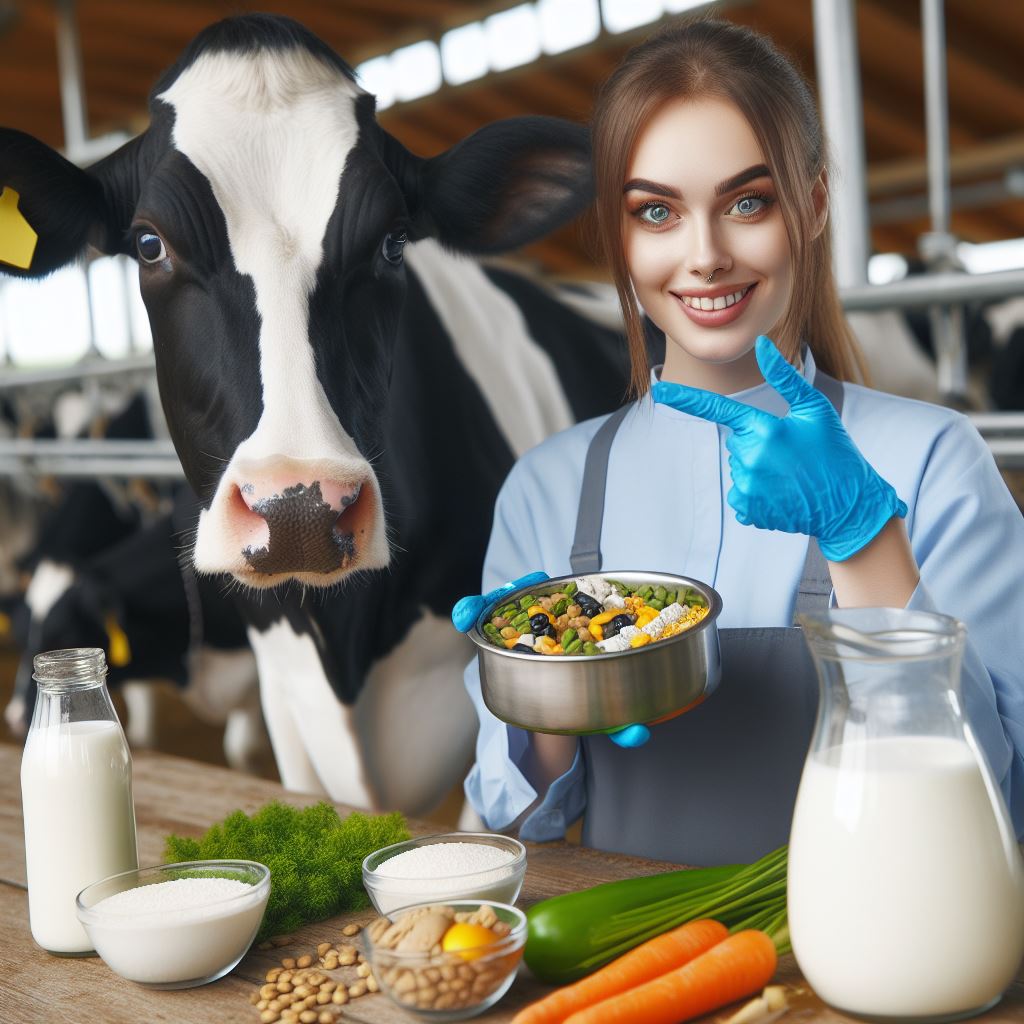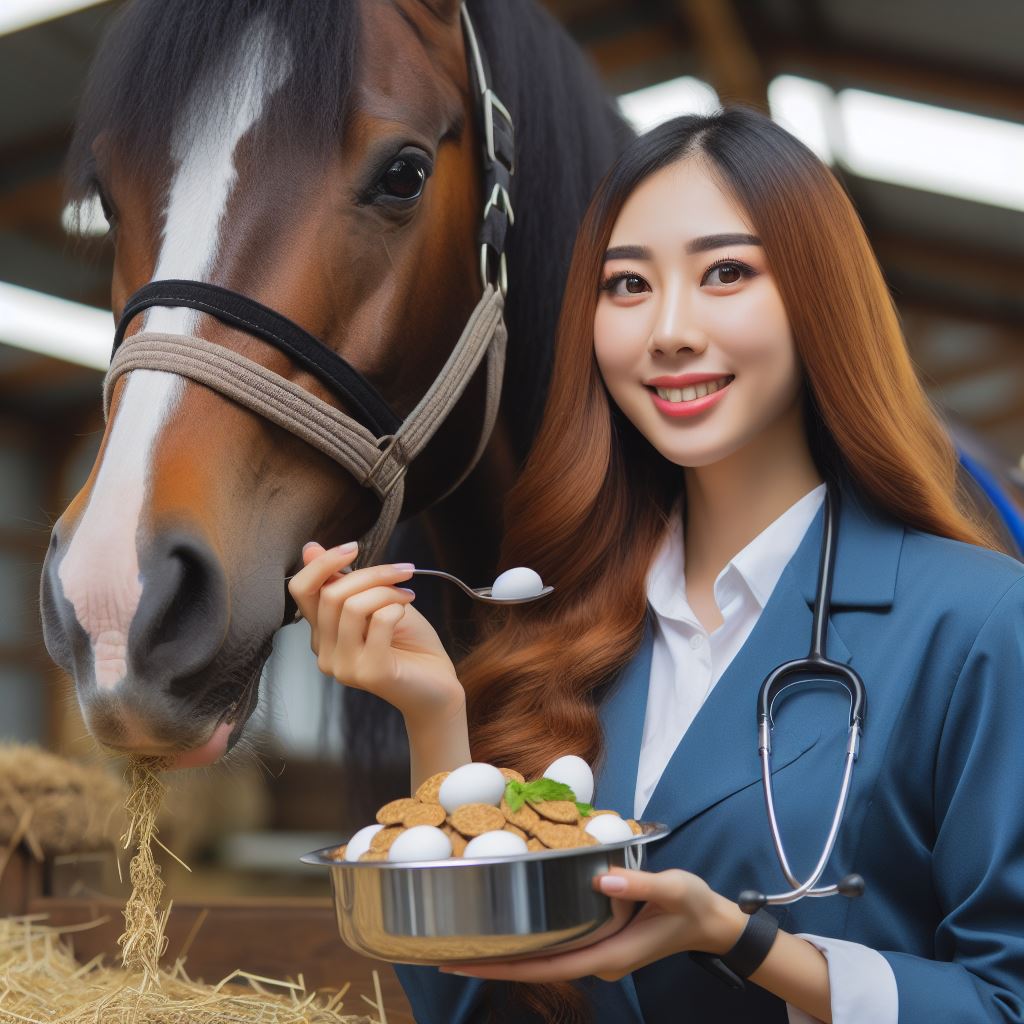Introduction
Importance of egg production in poultry farming
Egg production is a vital component of poultry farming.
Farmers rely on consistent egg production for a steady income and a flourishing business.
In this section, we will explore the topic of boosting egg production naturally using layer hen feed.
Poultry farmers understand the importance of maximizing egg production.
By providing the right nutrients and following certain natural practices, farmers can enhance egg production without relying on artificial stimulants or medications.
This not only ensures healthier eggs but also promotes sustainable farming practices.
Overview of the topic – boosting egg production naturally through layer hen feed
The cornerstone of increasing egg production naturally lies in the layer hen feed.
By formulating balanced diets specifically for layer hens, farmers can promote optimal egg-laying capabilities.
These feeds contain essential nutrients such as proteins, fats, vitamins, and minerals, which play a crucial role in egg development and quality.
Moreover, layer hen feeds are fortified with calcium to support strong eggshells, ensuring the eggs are less prone to breakage and possess excellent shelf life.
Another aspect to consider is the inclusion of natural additives in layer hen feed.
Herbs like oregano, garlic, and thyme have antimicrobial properties that can prevent common infections in layers, leading to improved egg production.
Therefore, boosting egg production naturally through layer hen feed is not only beneficial for the farmer’s income but also promotes sustainable and healthy farming practices.
By focusing on the right nutrition and incorporating natural additives, farmers can experience increased egg-laying capabilities and ensure the production of high-quality eggs.
Nutritional requirements of layer hens
Providing layer hens with a well-balanced diet is essential to boost their egg production naturally.
Transform Your Agribusiness
Unlock your farm's potential with expert advice tailored to your needs. Get actionable steps that drive real results.
Get StartedThe nutritional requirements of layer hens include high protein content, essential vitamins and minerals, and adequate energy sources.
High protein content
Protein is a vital component in the diet of layer hens as it plays a crucial role in egg production.
It is responsible for the formation of egg whites, yolks, and egg membranes.
Without sufficient protein, hens may struggle to produce eggs or produce eggs with poor quality.
When formulating layer hen feed, it is recommended to have protein levels of around 16-18%.
This ensures that hens receive an adequate amount of protein to support egg production.
Protein sources commonly used in layer hen feed include soybean meal, fishmeal, and other high-quality plant and animal protein sources.
Essential vitamins and minerals
Vitamins and minerals are important for the overall health and well-being of layer hens.
They also play a crucial role in egg production.
These nutrients are involved in various physiological processes, such as bone formation, feather growth, and reproductive health.
Layer hens require specific vitamins and minerals to support egg production.
These include Vitamin A, D, E, K, B12, calcium, and phosphorus.
Vitamin A is essential for the development and health of the reproductive organs, while Vitamin D helps in calcium absorption and proper eggshell formation.
Vitamin E acts as an antioxidant, protecting the reproductive cells, and Vitamin K is necessary for blood clotting.
In terms of minerals, calcium is crucial for strong eggshells, bone health, and muscle function.
Phosphorus is necessary for energy metabolism and plays a role in the synthesis of DNA and RNA.
Other important minerals include zinc, selenium, and manganese, which support overall immune function and reproductive health.
Adequate energy source
The energy content in layer hen feed is another important factor that can impact egg production.
Layer hens require a sufficient energy source to support their high energy demands for egg formation, maintenance, and daily activities.
Common sources of energy in layer hen feed include grains (such as corn and wheat), fats, and oils.
Grains provide carbohydrates, which are a primary source of energy.
Fats and oils offer a concentrated energy source and are highly digestible. Including a mix of these energy sources ensures that layer hens receive a balanced and sufficient energy supply.
Most importantly, providing layer hens with a well-balanced diet that meets their nutritional requirements is essential for boosting egg production naturally.
Ensuring a high protein content, offering essential vitamins and minerals, and providing an adequate energy source will contribute to healthier hens and increased egg production.
Showcase Your Farming Business
Publish your professional farming services profile on our blog for a one-time fee of $200 and reach a dedicated audience of farmers and agribusiness owners.
Publish Your ProfileRead: Sheep Feeding 101: Nutrition for Flock Health
Natural additives and supplements for enhancing egg production
Egg production in layer hens can be naturally boosted with the help of various additives and supplements.
By incorporating these natural elements into their feed, farmers can ensure improved egg quality and productivity.
Calcium-rich additives
One important additive to consider is calcium-rich sources.
Calcium plays a vital role in the formation of eggshells, as a lack of calcium can result in weak or thin shells.
By providing layer hens with adequate calcium supplements, such as crushed oyster shells or eggshell meal, farmers can help ensure the production of strong and healthy eggshells.
Omega-3 fatty acids
Omega-3 fatty acids are another valuable supplement for enhancing egg production.
These healthy fats not only improve the overall quality of eggs but also provide essential nutrients for the hens themselves.
Including sources of omega-3 fatty acids, such as flaxseeds or fish oil, in layer hen feed can lead to improved egg quality, including a higher content of beneficial nutrients for consumers.
Herbal supplements
In addition to calcium and omega-3 fatty acids, herbal supplements have gained popularity for their potential in boosting egg production naturally.
Herbs like red clover, nettle, or alfalfa have been known to have positive effects on reproductive health and egg production in layers.
However, it is important to follow proper dosage and guidelines when using herbal supplements to avoid any negative interactions or side effects.
When incorporating natural additives and supplements into layer hen feed, it is crucial to consider the specific needs of the flock and consult with experts if necessary.
The dosage, frequency, and combination of these supplements should be carefully balanced to ensure optimal results without causing any harm to the hens or compromising the quality of the eggs.
In essence, natural additives and supplements can play a significant role in boosting egg production in layer hens.
Calcium-rich additives are essential for strong and healthy eggshell formation.
Omega-3 fatty acids improve egg quality and provide beneficial nutrients.
Herbal supplements offer potential benefits but require proper dosage and guidelines for safe usage.
By utilizing these natural elements, farmers can enhance egg production and provide consumers with high-quality eggs.
Read: Top Tech in Modern Cattle Farming

Selecting high-quality commercial layer hen feed
Reading and understanding ingredient labels
When it comes to boosting egg production in layer hens, selecting the right feed is crucial.
As a poultry farmer, you need to be aware of the ingredients that go into the commercial layer hen feed to ensure the overall health and productivity of your flock.
Identifying key components for egg production
The ingredient label on the feed bag can provide valuable insights into the nutritional composition of the feed.
Look for ingredients like soybean meal, corn, wheat, and other grains that are high in protein and essential amino acids.
These components are vital for egg development and should be listed in the top few ingredients on the label.
Additionally, certain additives like flaxseed, fish oil, and alfalfa are known to enhance egg quality and promote the omega-3 fatty acid content in eggs.
These ingredients can have a substantial impact on the health benefits of the eggs produced by your hens.
Avoid feeds that contain excessive amounts of fillers or unnecessary additives that do not contribute to egg production.
Evaluating the nutritional value of different feed brands
Not all layer hen feeds are created equal.
It is essential to evaluate the nutritional value of different feed brands to ensure that you are providing the best possible diet for your hens.
Comparing protein, vitamin, and mineral contents
Protein is a fundamental component for egg production, so it is crucial to compare the protein content of different feed brands.
Look for feeds that contain at least 16-18% protein.
Additionally, check the vitamin and mineral contents, paying close attention to levels of calcium, phosphorus, and essential vitamins like A, D, and E.
These nutrients are essential for proper eggshell formation and overall hen health.
Considering cost-effectiveness
While it is essential to prioritize the quality of the feed, it is also necessary to consider the cost-effectiveness.
Compare the prices of different feed brands and determine the value for money.
Choose a feed brand that provides the necessary nutritional components at a reasonable cost, ensuring a desirable balance between quality and affordability.
In fact, selecting high-quality commercial layer hen feed requires careful consideration of ingredient labels and evaluation of nutritional value.
It is crucial to identify key components for egg production while avoiding harmful additives and fillers.
Additionally, comparing protein, vitamin, and mineral contents, as well as considering cost-effectiveness, will help you make the best decision for your flock’s health and productivity.
Showcase Your Farming Business
Publish your professional farming services profile on our blog for a one-time fee of $200 and reach a dedicated audience of farmers and agribusiness owners.
Publish Your ProfileRead: Effective Breeding Strategies for Beef
Explore Further: Latest Milking Tech: Revolutionizing Dairy Farms
You Might Also Like: Boost Your Beef Cattle’s Health: Top Tips
Homemade layer hen feed options
Benefits of homemade feed over commercial feed
Creating your own homemade layer hen feed offers several advantages over using commercial feed.
The ability to customize the ingredients according to the specific needs of your flock is a major benefit.
Different hens may require different levels of certain nutrients, and adjusting the feed accordingly can improve their overall health and productivity.
Besides customization, homemade feed can also save you money in the long run.
Commercial layer hen feed can be expensive, especially if you have a large flock.
By purchasing the individual ingredients and preparing the feed yourself, you can potentially reduce your feed costs while ensuring the quality and nutritional value of the feed.
Essential ingredients for homemade layer hen feed
To create a nutritious homemade layer hen feed, understanding the essential ingredients and their functions is crucial.
Key ingredients include grains, protein sources, vitamins, and minerals.
Grains provide energy, protein sources contribute to muscle development and egg production, while vitamins and minerals support overall health.
Properly balancing the nutritional requirements of your layer hens is essential for their well-being and egg production.
By carefully measuring and combining the ingredients, you can ensure that they receive the right amount of protein, carbohydrates, fats, vitamins, and minerals.
A well-balanced diet promotes egg production and maintains the health of your flock.
Recipes and guidelines for preparing homemade layer hen feed
To prepare your own homemade layer hen feed, follow these step-by-step instructions:
- Start by gathering the necessary ingredients. This may include corn, wheat, soybean meal, calcium, limestone, oyster shells, salt, and essential vitamins and trace minerals.
- Measure and mix the ingredients according to the specific recipe you are using. Take into account the nutritional requirements of your hens based on their age, breed, and production goals.
- Thoroughly blend the ingredients to ensure an even distribution of nutrients.
- Store the homemade feed in a cool, dry place to maintain its freshness. Proper storage helps prevent mold growth and maintains the nutritional integrity of the feed.
By following these guidelines, you can create a cost-effective and nutritionally balanced homemade layer hen feed for your flock.
Always monitor the health and egg production of your hens to make any necessary adjustments to their diet.
With homemade feed, you have full control over what your hens consume, resulting in healthier and more productive birds.
Read: Cattle Welfare: Ensuring Healthy Lives
Conclusion
Recap of the importance of layer hen feed in boosting egg production naturally.
Boosting egg production naturally can be achieved by providing the right layer hen feed.
Encouragement for farmers to explore various options and experiment with feed.
Farmers should try different feed options and experiment to find the best feed for their hens.
Final thoughts on the significance of healthy and nutritious layer hen feed in overall flock performance.
Healthy and nutritious layer hen feed plays a vital role in the overall performance and productivity of the flock.
The quality of layer hen feed is crucial for achieving high egg production naturally.
By providing the right feed, farmers can boost egg production and ensure the well-being of their hens.
It is important for farmers to explore different options and experiment with various feed to find the most suitable one for their flock.
By doing so, they can optimize their egg production and maximize their profits.
Additionally, it is worth emphasizing the significance of healthy and nutritious layer hen feed in enhancing the overall performance of the flock.
Proper nutrition leads to healthier and more productive hens, ultimately resulting in better egg production.
Farmers should prioritize the quality of their layer hen feed to ensure the success of their egg production operations.




